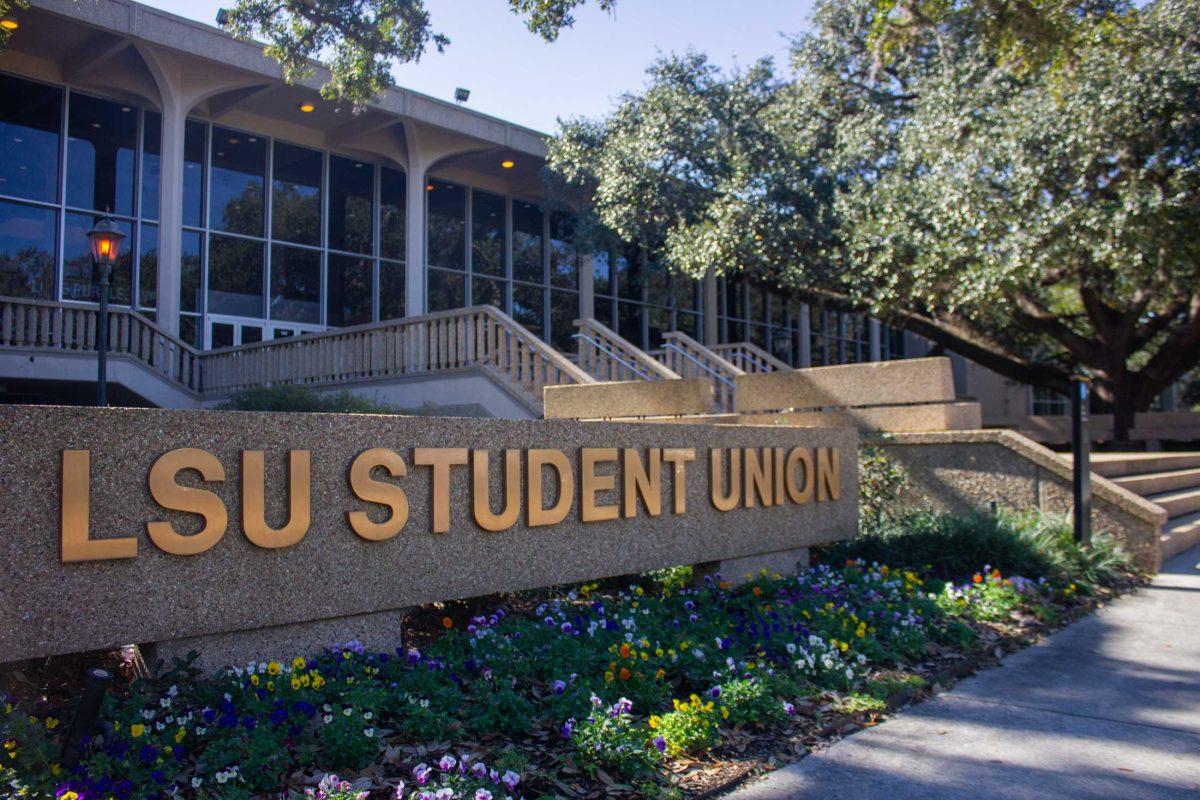LSU President William F. Tate IV appeared before the LSU Faculty Council in the LSU Student Union’s Royal Cotillion Ballroom on April 22 for a review and discussion of LSU’s goals.
To open the meeting, music professor and LSU Faculty Senate President Inessa Bazayev touted the Senate’s achievements over the past two years, particularly its emphasis on communication, engagement and shared governance.
To enhance communication, both the Senate and Tate have implemented additional means of faculty outreach; the Senate via its monthly newsletters and Tate through occasional reports.
Tate has also begun to meet monthly with members of Senate leadership, who’ve also been collaborating more closely with the LSU Board of Supervisors to better engagement between university decision makers.
Bazayev touched on recent collaborations between the Senate and LSU Executive Vice President and Provost Roy Haggerty to establish committees on student achievement and AI as products of the renewed emphasis on engagement and shared governance.
The announcement of the new LSU Faculty Senate Executive Committee concluded Bazayev’s remarks, congratulating political science associate professor Daniel Tirone, science professor Parampreet Singh, veterinary medicine associate professor Michelle Osborn, theatre associate professor Kyla Kazuschyck and science associate professor Kenneth Lopata for their election as president, vice president, secretary and members at large, respectively.
Speaking next was Tate, congratulating Bazayev and detailing how he has worked to improve LSU. A focus of his remarks was his attention to LSU’s colossal deferred maintenance tab, which as of 2022 totalled $636,808,794.
Tate used the LSU library as an example, joking that he had seen all of the posts on twitter (now X) complaining about the notorious state of the building.
The floor was then opened to the Council for questions.
A science faculty member asked about data and strategies to recruit and retain faculty, to which Tate acknowledged LSU’s low salary offerings in comparison to other SEC schools and promised to reallocate resources and solicit donations to solve the issue.
One topic raised that received attention was benefits, as one faculty member claimed a feeling of apathy among the faculty for what they saw as declining benefits. Faculty used to receive free blood tests and game tickets, and are currently required to pay for UREC access.
The claim was met with agreement from the room, with one faculty member saying “free parking,” under his breath.
Tate called them the most engaged faculty he’d ever encountered, and asked them to trust the process and understand his vision.
Later, sociology professor Tim Slack spoke and thanked Tate and the faculty for having an open dialogue and for all the work they’ve done, before bringing the conversation back to deferred maintenance.
“One of the issues we’ve been having is that Stubbs hall hasn’t been renovated since 1970… we have very few faculty that were even born that long ago,” Slack said. “We really struggle, it looks like it hasn’t been renovated since 1970, and we’ve had ceilings cave in, floods, we don’t have any ADA-compliant restrooms … someone that can’t navigate stairs can’t even make it to the political science department.”
Slack asked if there was a game plan for how all the needed renovations will occur.
Tate in response said the final goal is to eventually help all departments. By getting legislation passed to help buildings and staff and implementing “the big master plan,” he’s hoping for people to see “a very different campus in 4 to 5 years from now.”
The meeting ended shortly after.
“Thank you for everything you do, and thank you for your time today,” Tate said.





